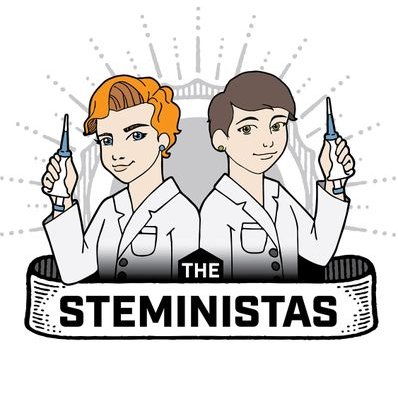For the longest time, people asked me 'how can you combine Genetics and English and why would you want to do it?' My original answer was something along the lines of 'well why not?' However, as I have just finished my PhD in Genetics and Molecular Biology I can see the huge benefit to having training in both science and communication.
 Once I began grad school, I found out about the burgeoning field of science communication that has blown up in the past few years. This led me to start the Steministas YouTube channel (Summer 2018) with another PhD candidate where we used science topics in the news and broke down the complexities of these topics so that anyone could understand them and have the tools they needed to learn about science for themselves. Some of our topics included 'What is the Science Behind the Keto Diet?", "What is a Three Person Baby?", and "Does Coffee Cause Cancer?". Eventually, we realized that our content would be much better suited to a podcast form and we started the Steministas Podcast (Summer 2019-Winter 2021) where we covered topics like "What are Vitamins?", "How does Science work?", and "What Causes Allergies?".
Once I began grad school, I found out about the burgeoning field of science communication that has blown up in the past few years. This led me to start the Steministas YouTube channel (Summer 2018) with another PhD candidate where we used science topics in the news and broke down the complexities of these topics so that anyone could understand them and have the tools they needed to learn about science for themselves. Some of our topics included 'What is the Science Behind the Keto Diet?", "What is a Three Person Baby?", and "Does Coffee Cause Cancer?". Eventually, we realized that our content would be much better suited to a podcast form and we started the Steministas Podcast (Summer 2019-Winter 2021) where we covered topics like "What are Vitamins?", "How does Science work?", and "What Causes Allergies?". Besides writing about general science for a public audience I have contributed to an in-depth feature article for The Scientist about my lab's research. In this article we discussed the history of the field of alternative splicing, described various diseases affected by this biological phenomenon, and explained the importance of studying this.
I wrote a guest post on the Genes to Genomes blog about how the field of genetics can be more equitable in education, research, and representation.









0 comments:
Post a Comment
Deoxyriboneucleic acids est awesome :)